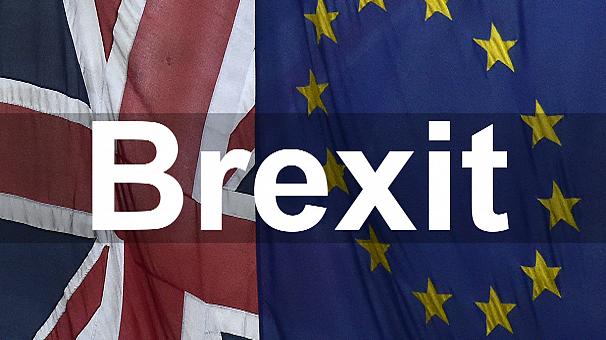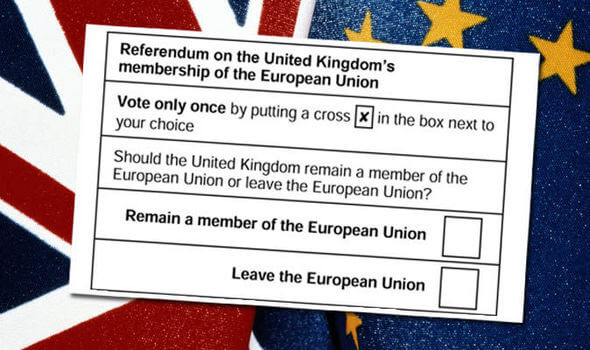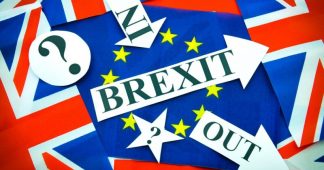By Philip Cunliffe and Peter Ramsay
Over the last few months the debate over Brexit has begun to change shape, and with it, a slow reshuffling of political alignments has taken place. Concerned about the crude xenophobic and nativist policies that were floated at the Tory party conference in September, both liberal Leavers and Remainers have been looking to forge alliances in order to help ensure they can fight for an open economy and a cosmopolitan society in the aftermath of Brexit. Since the ‘flash crash’ of pound sterling, the debate over whether Brexit will be ‘hard’ or ‘soft’ has come to the fore, even as the pound’s declining value has been taken as vindication of Remainers’ predictions over the economic damage that would result from a Leave vote. In the wake of such a major economic and political shock, it is important that we not restrict ourselves to the misleading binary option of ‘hard’ versus ‘soft’ Brexit. Here, much depends on how the European Union (EU) is understood.
First, with regards to freedom of movement, the distinction between hard and soft Brexit is misleading in so far as it associates freedom of movement with the single market. On TCM we have consistently argued for open borders and against the EU for its punitive and murderous external border controls. The EU’s freedom of movement has been anything but soft on those many Africans and Asians seeking to escape dictatorship, poverty and war. ‘Soft’ Brexit should not therefore be associated with free movement of peoples or indeed an open economy. Conversely, there is no reason in principle that a decisive and thorough-going break with the EU could not be compatible with open borders either: open to EU citizens and to everyone else, too.
Second, the assumption that things will be economically ‘softer’ by remaining tightly bound to the EU and the single market is based on the untenable assumptions of ceteris paribus – of everything else being held constant, as if the Eurozone economy can be kept on life-support forever. The fragmentation of the Eurozone cannot be indefinitely postponed. Brexit has become a convenient scapegoat for the ills afflicting the Western world, but any honest Remainer must know that the challenges to the EU project run much deeper, reverberating from structural contradictions at the core of the project. The hand-wringing over the crash in sterling is premised on the UK as a gateway to European markets and the Eurozone, drawing in investments that resulted in the overvalued pound, which in turn helped to disguise underlying problems of the UK economy, such as its stagnant productivity. However much Remainers may gloat over the flash crash, the question remains: how is an overvalued currency an argument for soft Brexit, or for Remain?
The British electorate have not voted to leave the EU in the midst of a booming global economy, or to delink from an EU in its prime. The Eurozone is a disaster zone; those accusing Leave voters of ‘arson’ should look to those who ruined the Greek, Spanish and Portuguese economies. The EU is structurally malformed, lop-sided and riddled with contradictions. A vote for Remain was ultimately a bet on the long-term viability of the EU – and that is a proposition more delusional than even those Anglosphere nostalgics who become misty-eyed by the thought of trading with Australia. Whatever the medium- to long-term results of the devaluation in pound sterling, it needs to be said and said again that issues of democracy, sovereignty and self-determination cannot be reduced to an exercise in public accounting and currency fluctuations.
This takes us to the third and final point – the fact that the hard / soft dichotomy obscures the crucial political distinction. Remainers gloating over the financial markets’ curbing of British sovereignty miss the point. Sovereignty concerns the nature and location of political authority more than it concerns national power and prestige. The UK’s membership of the EU is a wholly different type of issue to its relationship with the single market. As we have argued on TCM, the EU evades popular sovereignty more than it restricts national sovereignty. The EU is not merely an association of nation-states that agree to restrict each other’s external choices for their mutual benefit. It is better understood as the institutional outgrowth of internal changes in each of its constituent states: this is the shift from nation-states to member-states. This transformation has seen the curbing of legislative oversight and the systematic exclusion of the public from political decision-making through cross-border elite cooperation. Popular sovereignty has been evaded for the administrative convenience of bureaucrats and executives.
Once this is understood, the debate over ‘hard’ versus ‘soft’ Brexit can be seen in a different light. If ‘soft Brexit’ entails accepting certain EU regulatory structures in order to retain access to the single market, then an external restriction on the country’s trading choices may be acceptable if – and only if – it is seen as economically beneficial by the electorate and their representatives. The issue is who gets to decide. The British as a sovereign people can democratically decide to recognise the limits of their power and make a choice to abide by rules made by others in order to trade successfully. This is a question of contingent costs and benefits – quite different from membership of the EU, which degraded the internal sovereignty of the British state in so far as it enabled the government to evade political accountability for law-making.
For decades, the British public and parliaments have not been consulted on the question of whether the costs of EU regulation are outweighed by the benefits. The Brexit vote appropriately restores their right to decide. If Brexit requires the British public rationally to adapt to a lesser place in the world, so much the better: the EU facilitated delusions of British global power and reach. What is most important, then, is that the legal and political supremacy of state institutions has been reaffirmed – and with it the possibility for greater democratic accountability and political responsiveness.
The stagnation of the global economy, the growth of geopolitical rivalries, the populist assault on elitist political systems around the world: all these indicate that a cycle of global order is crumbling away, and with it an era of technocratic liberalism incarnated in the European Union more than any other political system. Whether we welcome or mourn these changes, we need to recognise that neither US hegemony nor the Brussels’ bureaucracy could last forever; to deny this is simply to deny change itself.











